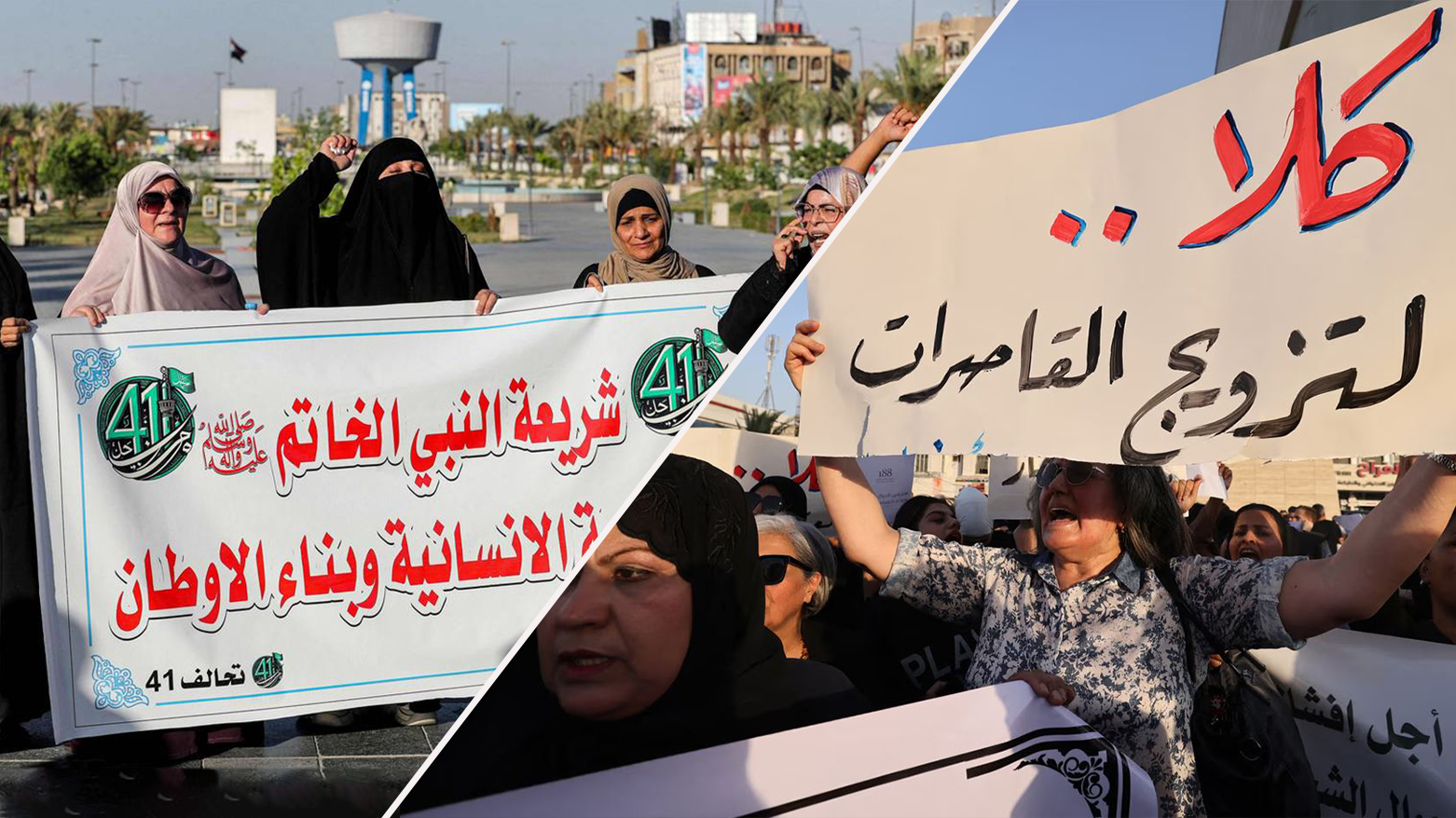Amended Iraqi Personal Status Law Victimizes Children, Ignites Fierce Opposition
Iraq's amended personal status law has ignited outrage among lawyers and doctors, who warn it victimizes children and severely undermines women's rights. Critics say the law, which allows for sectarian choice in family matters, will legalize child marriage and strip mothers of custody.

ERBIL (Kurdistan24) – A highly contentious amendment to Iraq’s Personal Status Law has officially gone into effect, sparking widespread alarm among lawyers, doctors, and human rights activists who warn that the legislation delivers a devastating blow to the rights of women and, most critically, victimizes children caught in the crossfire of marital disputes and sectarian jurisprudence.
The law, which introduces the option for citizens to follow the Ja'fari school of thought in matters of marriage and family, is being condemned as a catastrophic step backward that threatens to legalize child marriage, strip mothers of custody rights, and shatter the stability of Iraqi families.
The amended law, which was passed on February 17, 2025, despite a seven-year-long battle by its opponents, has been described as a source of "great injustice against women."
Isra Khafaji, a lawyer who has followed the legislation's fraught journey, told Kurdistan24 correspondent Saif Ali that the draft had been consistently rejected for years due to its harmful provisions. One of the most alarming changes, she explained, is the stipulation that "takes a child from its mother at the age of seven, which means eliminating the child's freedom."
Khafaji warned that this provision will have dire consequences for Iraqi society, leading to "the loss of stability for Iraqi families, the deepening of problems, and an increase in the divorce rate."
At the heart of the opposition is the belief that the law disregards the fundamental principle of a child's welfare.
Regarding custody battles, Khafaji was unequivocal: "The child's best interest must be taken into consideration, and the decision on which of them is more suitable to have custody of the child must be respected." This sentiment is shared across professions, with psychologists and specialists in family affairs agreeing that, regardless of the legal framework, "the primary victim is always the child."
The law’s potential to sanction child marriage has also drawn severe criticism from the medical community.
Dr. Suheila Sabah, a family doctor, stated her absolute opposition in a comment to Kurdistan24, saying, "We are completely against the marriage of adolescent girls, as a female at this age is a child." This concern is not theoretical.
As previously reported by Kurdistan24, the Ja'fari school of law, now an option for Iraqi citizens, could permit the marriage of girls as young as nine, according to international rights groups like Human Rights Watch.
This legislative change dismantles a key pillar of Iraq's modern civil state: the unified Personal Status Law No. 188 of 1959. That landmark law, which does not apply in the Kurdistan Region, was crafted to create a single legal code for all Iraqis by synthesizing elements from various Islamic schools of thought.
The new amendment shatters this unity, creating what legal expert Bestun Mirani previously described to Kurdistan24 as a recipe for "societal chaos." Mirani warned that allowing individuals to choose their governing sect for marriage, divorce, and inheritance "creates many problems for the court and society," as rights and duties will now vary dramatically.
The most severe consequences are expected to fall upon women and children. Under the Ja'fari jurisprudence, Mirani explained, "the right to custody of a child, at any age, is granted to the father," a radical departure from civil protections that often prioritize the mother. Furthermore, a woman's inheritance rights are drastically curtailed, potentially leaving widows destitute as they would be unable to inherit land, only a share of any building on it.
The fears expressed by legal and medical professionals are already playing out in the lives of Iraqi women.
In protests that erupted before the law's passage, women shared harrowing stories with Kurdistan24. Activist Shahd Ameri recounted how her ex-husband, emboldened by the proposed changes, was demanding custody of their children to evade child support payments. Another protester, Jamila Izzat, shared a more tragic outcome, stating that her ex-husband, after forcibly taking their children, had "married off my teenage daughter." Her cry that "this law has destroyed the lives of Iraqi mothers and children" has now become a rallying cry for the opposition.
The international community has also voiced grave concerns. The United Nations in Iraq previously urged that any reforms must "adhere to Iraq’s international human rights obligations, especially concerning women and children."
The amendment is seen by many as part of a broader, regressive trend in a country where a critical draft law against domestic violence has been stalled in parliament for years by religious political parties. Now, with the amended Personal Status Law in effect, the battle for the rights and futures of Iraq's most vulnerable has entered a new and alarming phase.
Kurdistan24's correspondent, Seif Ali, contributed to this report.
